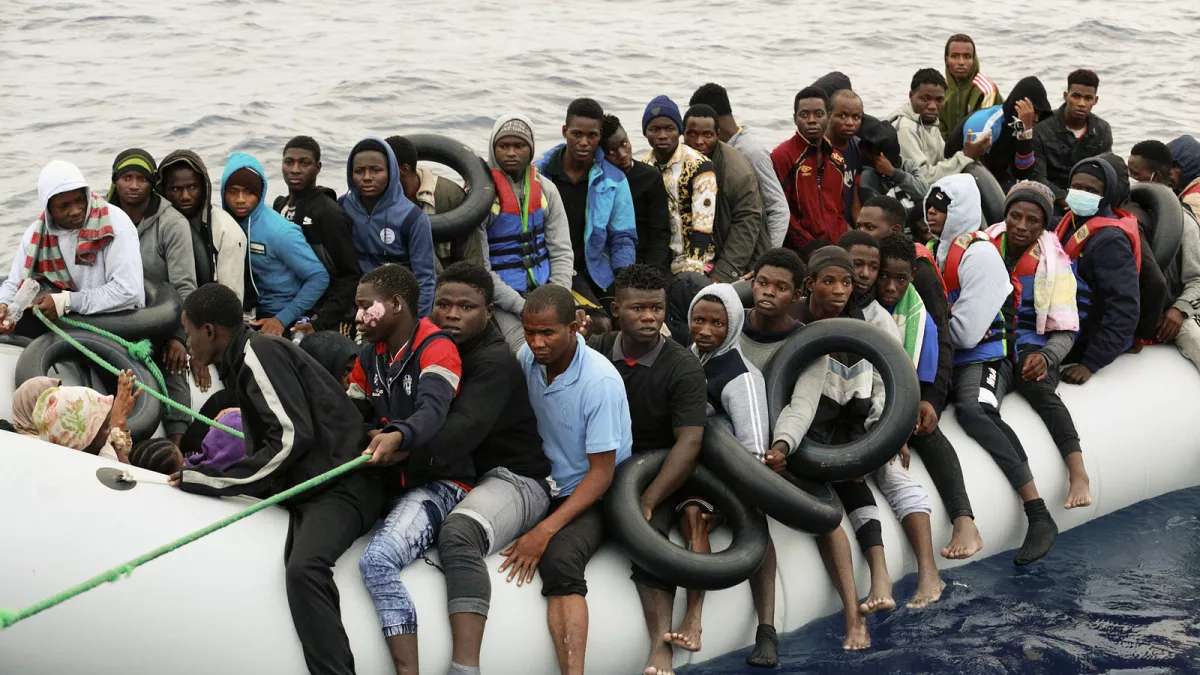Human Trafficking and Violence in Libya, 49 Bodies Found in New Mass Graves – UN Expresses Concern
The United Nations has reported that some of the bodies of migrants recently discovered in mass graves in Libya have gunshot wounds. The International Organization for Migration (IOM) expressed deep concern and dismay following this discovery on Monday. During a police operation, hundreds of victims of human trafficking were rescued, and the two mass graves were found
Human Trafficking and Violence in Libya, 49 Bodies Found in New Mass Graves – UN Expresses Concern
Human Trafficking and Violence in Libya, 49 Bodies Found in New Mass Graves – UN Expresses Concern
The United Nations has reported that some of the bodies of migrants recently discovered in mass graves in Libya have gunshot wounds. The International Organization for Migration (IOM) expressed deep concern and dismay following this discovery on Monday. During a police operation, hundreds of victims of human trafficking were rescued, and the two mass graves were found.
According to IOM, 19 bodies were discovered near the town of Jakharrah, located about 400 kilometers south of Benghazi. Additionally, 30 bodies were found in the southeastern desert region of Kufra, and sources suggest there could be up to 70 bodies in the mass grave.
The UN agency confirmed that gunshot wounds were found on some bodies, but the exact cause of death remains unknown. IOM's Chief of Mission Nicoletta Giordano stated, "Many migrants along these journeys endure severe exploitation, violence, and abuse, underscoring the importance of protecting human rights and safeguarding those at risk."
Last year, Libyan authorities unearthed at least 65 bodies in the Shuayrif region, south of the capital, Tripoli. Over the past decade, the country’s instability has benefited human traffickers, who have been smuggling migrants and refugees across the country’s six borders. Human rights organizations and UN agencies have documented systematic abuse of migrants in Libya for years.
On Monday, IOM called on the Libyan authorities to ensure "dignified recovery, identification, and transfer of the deceased migrants' remains while notifying and assisting their families."
Last year, 965 deaths and disappearances of migrants and refugees were recorded in Libya, with 22 percent occurring on land routes, which are often underreported, according to IOM.
Libya has been in political instability for over a decade, starting after the NATO-backed uprising in 2011 that toppled Muammar Gaddafi. The political chaos has led to rival governments and armed groups, which have been accused of violating migrants' human rights.
"Immigrants and asylum seekers, including children, detained by armed groups or traffickers, suffer inhumane conditions, torture, forced labor, and sexual assault," said Human Rights Watch in a recent report on Libya.










